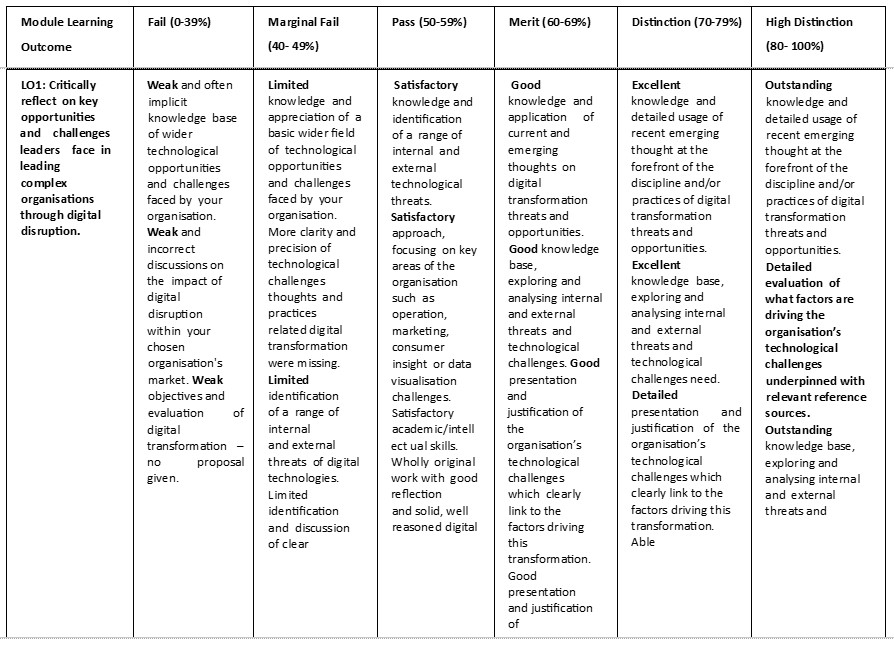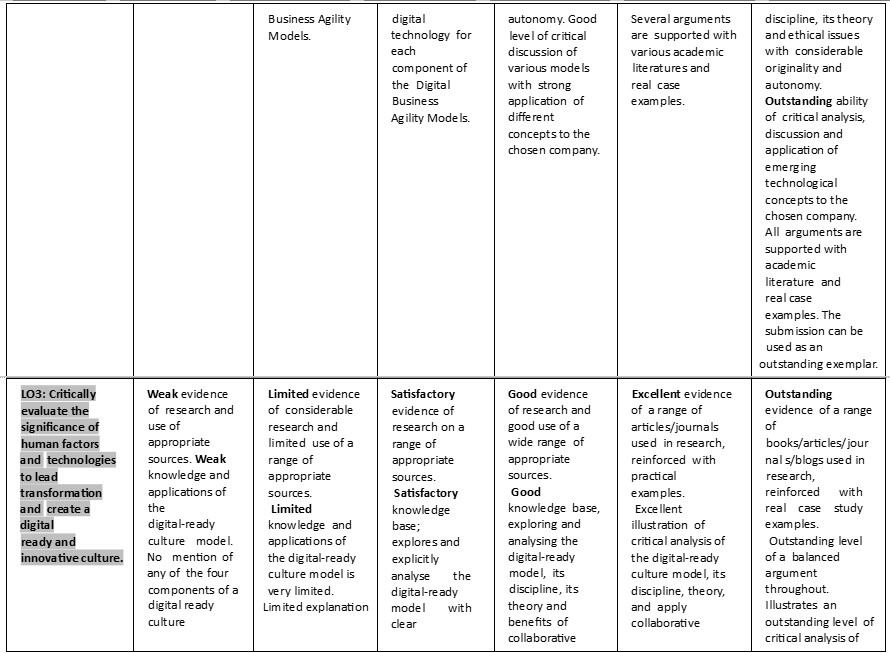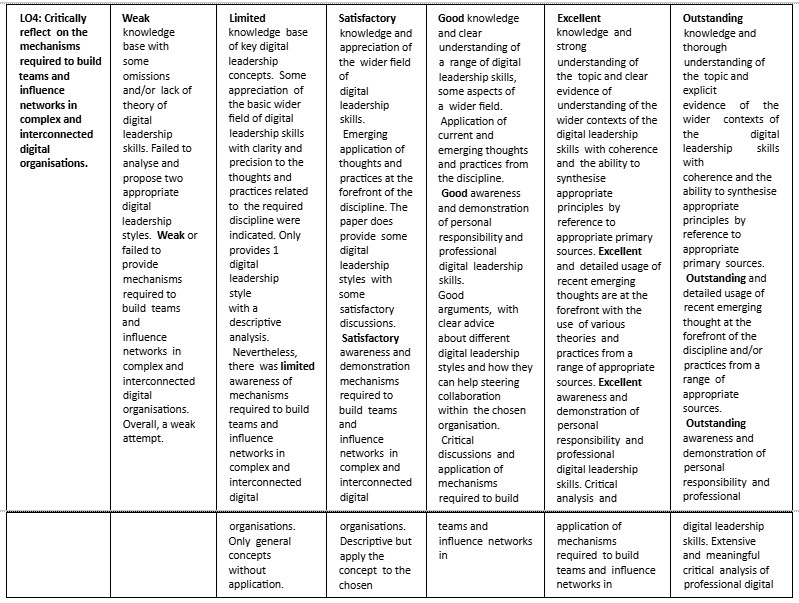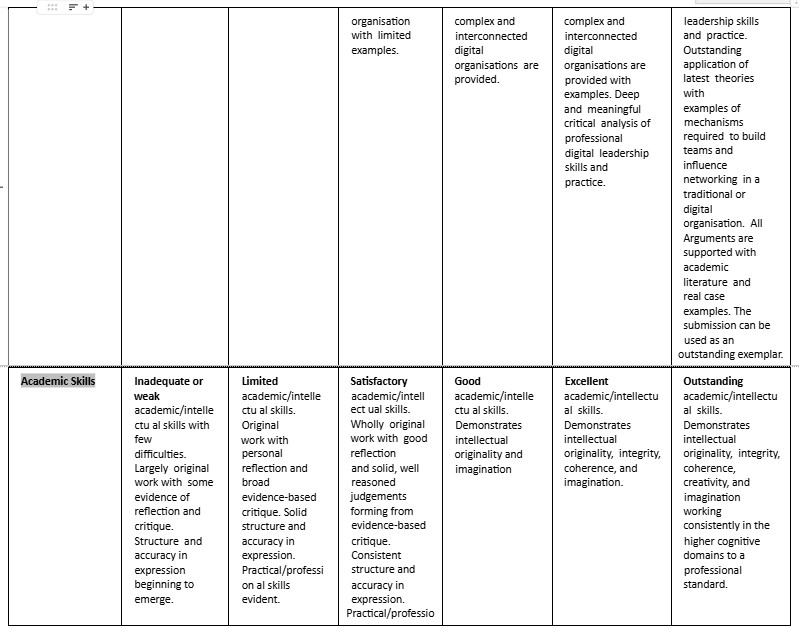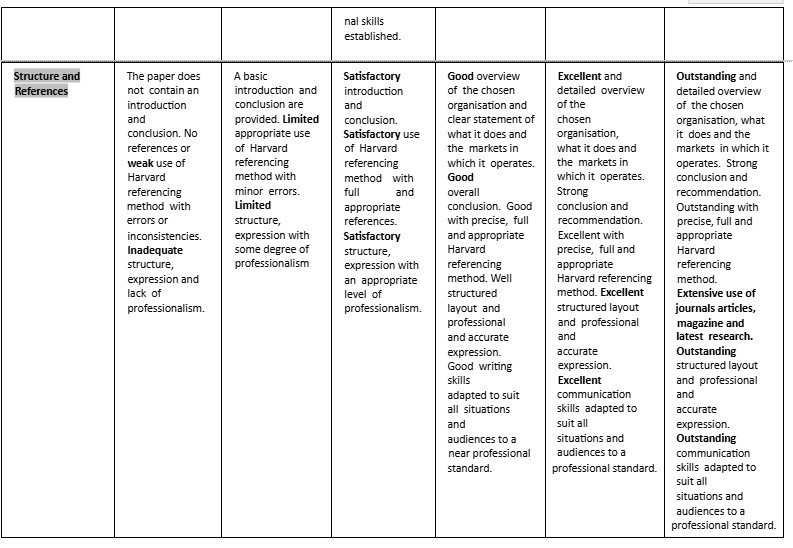Please use this document as the cover sheet of for the 1st page of your assessment. Please complete the below table – the grey columns
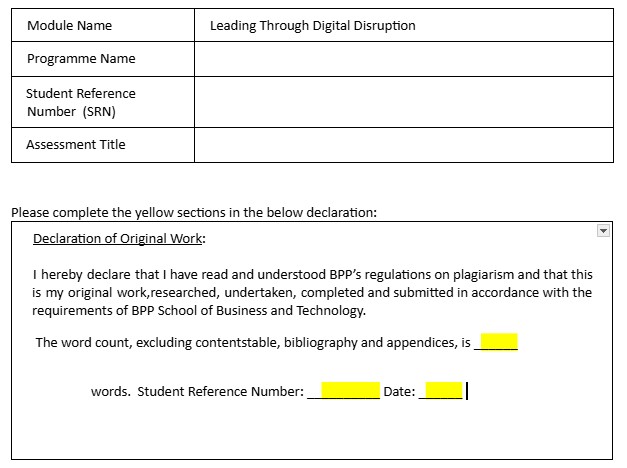
By submitting this coursework, you agree to all rules and regulations of BPP regarding assessments and awards for programmes.
Please note that by submitting this assessment you are declaring that you are fit to sit this assessment.
BPP University reserves the right to use all submitted work for educational purposes and may request that work be published for a wider audience.
MSc Management with (Project Management, Data Analytics, Digital Marketing)
Leading-Through-Digital-Disruption Coursework Assessment Brief 4
Submission mode: Turnitin online access
1. General Assessment Guidance
- • Your summative assessment for this module is made up of this 1 submission which accounts for 100% of the marks.
- • Please note late submissions will not be marked.
- • You are required to submit all elements of your assessment via Turnitin online access. Only submissions made via the specified mode will be accepted and hard copies or any other digital form of submissions (like via email or pen drive etc.) will not be accepted.
- • For coursework, the submission word limit is 2,500 words. You must comply with the word count guidelines. You may submit LESS than 2,500 words but not more. Word Count guidelines can be found on your programme home page and the coursework submission page.
- • Do not put your name or contact details anywhere on your submission. You should only put your student registration number (SRN) which will ensure your submission is recognised in the marking process.
- • A total of 100 marks are available for this module assessment, and you are required to achieve minimum 50% to pass this module.
- • You are required to use only Harvard Referencing System in your submission. Any content which is already published by other author(s) and is not referenced will be considered as a case of plagiarism.
- • BPP University has a strict policy regarding authenticity of assessments. In proven instances of plagiarism or collusion, severe punishment will be imposed on offenders. You are advised to read the rules and regulations regarding plagiarism and collusion in the GARs and MOPP which are available on VLE in the Academic registry section.
- • You should include a completed copy of the Assignment Cover sheet. Any submission without this completed Assignment Cover sheet may be considered invalid and not marked.
You can find further information on Harvard Referencing in the online library on the VLE. You can use the following link to access this information:
2. Assessment Brief
This module is assessed through one graded element. You must achieve at least 50% to pass this module.
By completing this assessment, you will the following learning outcomes (LOs): • LO1: Critically reflect on key opportunities and challenges leaders face in leading complex organisations through digital disruption.
- • LO2: Understand how to sense changes, make informed decisions and adjust quickly in highly disruptive times.
- • LO3: Critically evaluate the significance of human factors and technologies to lead transformation and create a digital-ready and innovative culture.
- • LO4: Critically reflect on the mechanisms required to build teams and influence networks in complex and interconnected digital organisations.
Assessment Scenario

Modern media consumption habits have completely changed as a result of the development of digital technologies. Online communities and streaming services have upended traditional media platforms like cable and satellite television. The media industry as a whole has been significantly impacted by this change in media consumption tendencies.
As the main public service broadcaster in the UK, the BBC’s mission is to inform, educate and entertain (Article 57 of the Royal Charter, 2022). Hence in May 2022, the BBC announced that it would be taking a new ‘digital-first’ approach to meet the industry demand. However, a report from National Audit Office (NAO) casted doubt on the ability of the BBC to build a digital-first public service media organisation and manage the future demands of viewers and listeners (nao,2023).
For this assignment, you will be acting as the new “Digital Transformation Consultant” responsible for coordinating and providing technology expertise to the BBC.
As part of your new role, the senior board members have tasked you to produce a “Digital Trend Report'' designed to evaluate and recommend changes that the organisation must implement by means to maintain a competitive edge in a disruptive media industry.
Task 1: Review of Opportunities and Challenges (LO1)
Critically review key opportunities and challenges your organisation is facing in the current, yet complex digital disruption environment.
- Important: Your analysis for Task 1 should be critical - you must recommend some digital transformation objectives that can support key departments such as Operations, ICT, and Marketing. You are encouraged to use examples to reinforce your arguments.
Task 2: Digital Business Agility and Technologies (LO2)
Evaluate and propose two (2) emerging technologies and techniques that can be adopted by your organisation to sense changes, make informed decisions, and adjust quickly in a highly disruptive market.
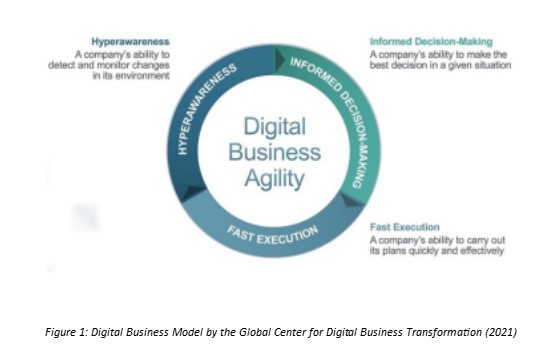
Task 3: Creating Digital-Ready Culture (LO3)
Strong digital cultures also foster creativity and adaptability. Subsequently, Task 3 requires you to analyse and conceptualise a strong digital culture approach that your organisation can adopt by using digital tools and data-powered insights to drive decisions and customer centricity while innovating and collaborating across the organization.
- Important: Please support your argument with academic literature and real case examples. You can use the 4 Pillars of Digital Culture or other relevant models as a guide to drive your analyses and recommendations.
Task 4: Adopting Digital Leadership (LO4)
Analyse and propose two (2) appropriate digital leadership styles that your organisation could develop further by means to support digital transformation and increase team collaboration throughout the organisation.
Academic Skills, Structure and References
- • A clear introduction and conclusion.
- • Work demonstrates intellectual originality, integrity, coherence, creativity and imagination.
- • Professional academic standards are followed consistently.
- • Structure is in line with the given instructions.
- • Report must be written in 3rd person.
- • Give a professional appearance with consistent formatting.
- • Spelling and grammar are correct.
- • Each page has page number in the Footer.
- • Any tables or figures are correctly labelled.
- • Tables and figures do not cross boundaries, unless necessary
- • Properly cite your sources in the text and in the list of references
- • Use Harvard style for referencing and in text citations (see referencing guides and
Proposed Structure and Word Limit Guidance
Your report structure should include the following sections:
- • Cover page (BPP University Administration Cover Sheet)
- • Table of Contents
- • List of Abbreviations (if appropriate)
- • Introduction
- • Task 1
- • Task 2
- • Task 3
- • Task 4
- • Conclusion
- • References
- • Appendix (if required)
If you have any further questions about this coursework assignment, please contact the module leader or your tutor.
3. Marking Guide
